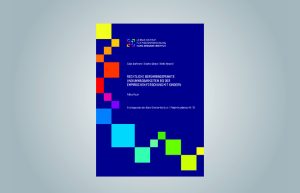No data processing without the informed consent of the persons concerned. This is one of the conclusions of Sünje Andresen, Stephan Dreyer and Neda Wysocki, who have looked at the legal issues and imponderables in empirical research with children. The policy paper can be downloaded here.
Andresen, S., Dreyer, S., & Wysocki, N. (2024). Rechtliche Berührungspunkte und Unwägbarkeiten bei der empirischen Forschung mit Kindern: Policy Paper [Legal Issues and Imponderables in Empirical Research with Children: Policy Paper]. (Working Papers of the Hans-Bredow-Institut, 73). Hamburg: Verlag Hans-Bredow-Institut. https://doi.org/10.21241/ssoar.98487
The BMBF-funded project “SIKID – Security for Children in the Digital World: Improving Regulation, Networking Stakeholders, Implementing Children’s Rights” is researching the legal framework for online interaction risks for children and young people, developing options for optimally interlinking stakeholders and measures, and examining the coping strategies used by young people during and after stressful situations.
 In this context, the project team at the HBI has developed a comprehensive research ethics concept that discusses ethical issues and problems in research with children and offers guidance.
In this context, the project team at the HBI has developed a comprehensive research ethics concept that discusses ethical issues and problems in research with children and offers guidance.
The policy paper is devoted primarily to two areas of these imponderables. From a systematic point of view, legal requirements primarily represent minimum standards for the processing and handling of personal data in the context of empirical research. The paper therefore outlines the central legal framework conditions that apply to the collection and processing of qualitative research data with personal reference. The first focus of the overview is on the general legal requirements for personal rights and data protection in the “normal case”, as they arise from the General Data Protection Regulation (GDPR) (section 2). The second section sheds light on the special situations in which, for example, in the context of security research, criminally relevant information is obtained from or about third parties (section 3). Where research involving children has particular implications, for example for legal provisions or assessments, the authors make specific reference to this. Based on the challenges identified, the paper concludes with recommendations for researchers and calls to the legislature (section 4).


